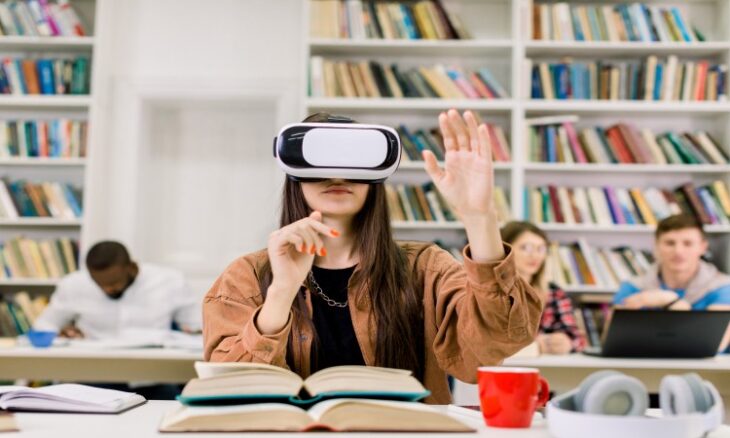Ivey adopts VR to reshape leadership education
The Ivey Business School is introducing an innovative initiative that utilises virtual reality to enhance empathy and leadership skills among its students. The project, led by Professor Shannon Rawski, aims to move beyond traditional strategic training by encouraging future leaders to understand the perspectives of others better. While virtual reality has been widely adopted in science and technology education, its application in business schools remains limited, particularly in cultivating complex social skills.
Rawski has long recognised the potential of virtual reality after witnessing its effectiveness in her earlier research on bystander training for sexual harassment. She viewed the immersive and low-risk qualities of the technology as a valuable tool for experiential learning. Determined to introduce this approach at Ivey, she applied for funding through the Critical Issues Challenge Fund, which provides grants of up to $150,000 to initiatives addressing pressing business and societal challenges. With the grant awarded, her team began designing a simulation tailored explicitly for business students.
The core aim of the project is to strengthen perspective-taking, a competency that Rawski believes is essential for leadership yet often neglected in formal education. She emphasised that such a skill cannot be mastered solely through theory, as it requires practical application in real-world scenarios. However, students often hesitate in classroom settings due to fear of making mistakes or damaging their reputations. Virtual reality provides a safe environment where they can experiment, reflect, and grow without those concerns.
The simulation was developed from the ground up with contributions drawn directly from students’ lived experiences. Incidents of prejudice, racism, sexism, and classism shaped the script, ensuring the scenarios reflected authentic challenges. The final product is a three-minute immersive experience set in a high-pressure team meeting. At first, participants observe the exchange as neutral bystanders, where discussions appear straightforward, involving task delegation and project deadlines. Later, they rewatch the same scenario from the perspective of an individual team member, allowing them to feel the subtle but significant differences in how events are experienced. This shift in perspective highlights the often-overlooked dynamics present in everyday professional interactions.
To realise the project, Rawski assembled a team of 12, which includes Professor Zoe Kinias, an expert in organisational behaviour and sustainability, and the John F. Wood Chair in Innovation in Business Education. Kinias, whose research has also explored how ideas are shared and appropriated in virtual environments, is overseeing pilot testing with support from the John F. Wood Centre. She regards the simulation as a response to a persistent gap in leadership development, where understanding the viewpoints of others is frequently undervalued.
Pilot sessions have already been conducted with both volunteer groups, comprising Honours Business Administration students and master of Science students, as well as the Women in Asset Management 2025 cohort. The VR exercise functions similarly to a teaching case. Following immersion, participants first reflect individually and then discuss their experiences in small groups, before moving into a broader class discussion. This layered process ensures students not only experience perspective-taking but also engage critically with it afterwards.
Feedback from these pilots has been encouraging. Many students described the exercise as deeply engaging, noting that the immersive format offered valuable insights into interpersonal dynamics. The ability to step into another person’s shoes and hear their inner thoughts created an experience they found difficult to replicate through conventional classroom learning. Based on these positive outcomes, the team is refining the simulation further to ensure it resonates across diverse student groups and integrates seamlessly into multiple programmes at Ivey.
By embracing virtual reality as a teaching tool, Ivey is positioning itself at the forefront of business education innovation. The initiative signals a shift in how leadership development may be approached in the future, placing empathy and perspective-taking alongside strategy and analysis as core skills for tomorrow’s leaders.










